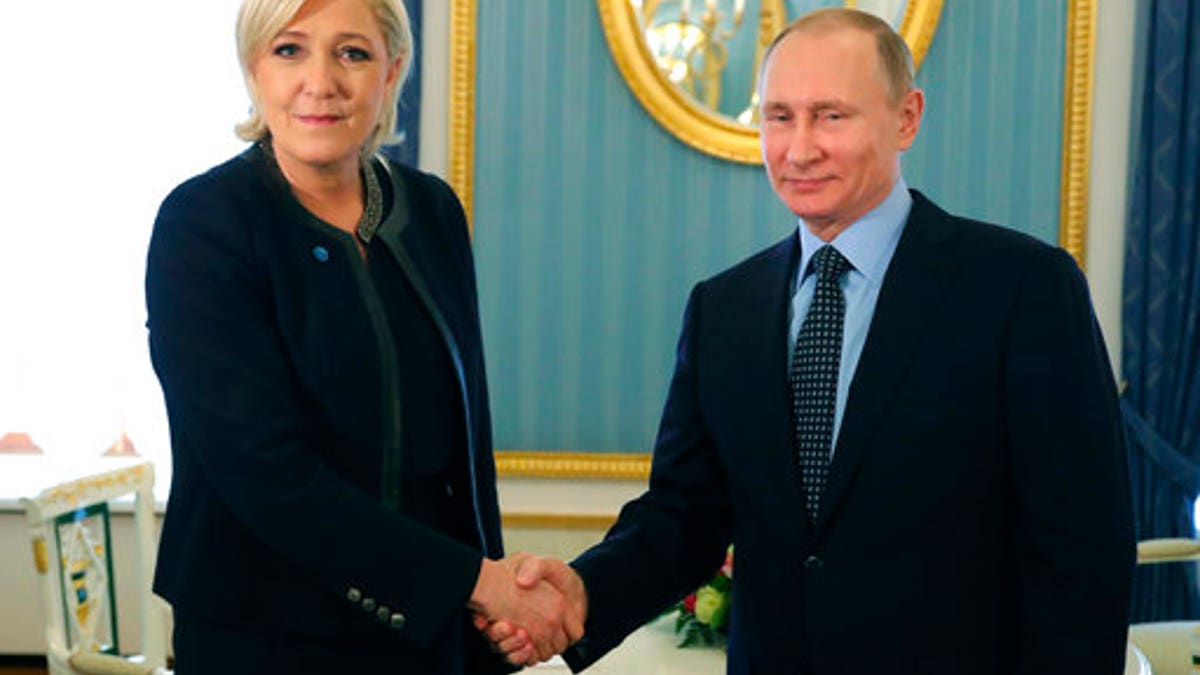
Russian President Vladimir Putin, right, shakes hands with French presidential candidate Marine Le Pen at the Kremlin. (Mikhail Klimentyev, Sputnik, Kremlin Pool Photo via AP)
President Vladimir Putin held a surprise meeting Friday with France's far-right presidential candidate Marine Le Pen, yet dismissed suggestions that Russia aims to influence the election in her favor.
Le Pen met Putin hours after a previously announced visit to the lower house of Russia's parliament. In the meeting with members of the Duma, Le Pen urged Russia and France to work together to save the world from globalism and Islamic fundamentalism.
RUSSIAN EX-LAWMAKER KILLED IN UKRAINE; POROSHENKO CALLS IT 'STATE TERRORISM'
Such positions put her in parallel with Kremlin stances and there has been wide speculation that Russia aims to influence the upcoming French election. But Putin dismissed those claims.
"We in no way want to influence events, but retain for ourselves the right to meet with all representatives of all political powers, just as our partners in Europe and the U.S. do," he said.
LAWYER FOR RUSSIAN WHISTLEBLOWER'S FAMILY PLUMMETS FROM APARTMENT
Le Pen has made multiple trips to Russia and often met with Russian lawmakers. Moscow has courted far-right parties in Europe in an influence-building campaign amid friction between Russia and the West over the conflict in Ukraine and the war in Syria.
Over the years, Putin has frequently met with Francois Fillon, the center-right Republican Party's presidential candidate who was French prime minister in 2007-12. An unconfirmed report this week said that Fillon was paid $54,000 to arrange a meeting between Putin and a Lebanese magnate. Fillon has called the accusation a "shameful lie."
France's two-round presidential election takes place on April 23 and May 7. Le Pen is expected to be among the top two vote getters on April 23 who move on to a presidential runoff on May 7.
Putin's meeting with Le Pen came amid rising controversy over whether Russia tried to influence the U.S. presidential election by hacking computer accounts of the Democratic National Committee, and over meetings between members of President Donald Trump's inner circle and the Russian ambassador.
Moscow has courted far-right parties in Europe in an influence-building campaign as friction between Russia and the West has mounted over the conflict in Ukraine and the Syrian civil war.
